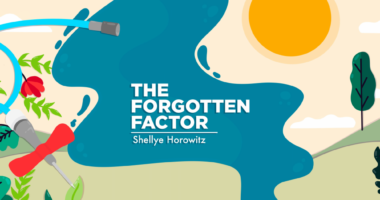WHO’s guidance for the treatment of hemophilia sparks controversy
Advocates are troubled by updates to the organization's Essential Medicines List

In the 1970s and ’80s, treating my von Willebrand disease and hemophilia B often involved a regimen that included fresh frozen plasma, platelets, and cryoprecipitate. Cryoprecipitate, a blood component derived from frozen plasma, contains vital clotting factors such as fibrinogen, factor VIII, von Willebrand factor, and factor XIII.
Memories from my youth of receiving these medications during procedures like knee surgery and tooth extractions remain vivid. The concept of frozen plasma intrigued me, and I wondered if there would be a sensation of coldness as it was infused into my system. If there was, I don’t remember. As for cryoprecipitate, often referred to simply as cryo, its purpose eluded me entirely at the time.
Cryoprecipitate hasn’t been a part of my treatment plan, nor has anyone suggested I use it since the 1980s. Products made from other people’s blood put you at risk of catching viruses they may have. The fact that I was administered cryoprecipitate during the “hemophilia holocaust” caused me great consternation when I learned it put me at greater risk of contracting HIV.
Thankfully, the landscape of treatment has evolved significantly since then. Advances in medical technology have led to the development of more refined and specific clotting factor concentrates, reducing the reliance on cryoprecipitate. These newer products, often produced through genetic engineering, offer standardized potency, reduced risk of transmitting diseases like HIV and hepatitis, and longer shelf life.
The WHO’s surprise decision
Despite these advancements, the World Health Organization (WHO) recently surprised many by listing cryoprecipitate as an essential medicine for treating hemophilia A and von Willebrand disease, while factor concentrates were not included. This decision has been criticized by organizations such as the World Federation of Hemophilia, the National Bleeding Disorders Foundation (NBDF), and the Hemophilia Federation of America (HFA).
The WHO’s Essential Medicines List (EML) significantly impacts how countries and physicians approach treatment, often serving as a guide for nations as they standardize and implement treatment protocols. Governments focus their resources on procuring and distributing drugs that address their population’s health needs by prioritizing essential medicines.
In a joint statement, the NBDF and HFA expressed concern over the inadequate safety of cryoprecipitate, particularly regarding the transmission of bloodborne illnesses like HIV and hepatitis C. They called on the WHO to reconsider its decision and include factor concentrates on its Essential Medicines List.
Even the Centers for Disease Control and Prevention (CDC) acknowledges the limitations of cryoprecipitate, stating that its use has declined due to the inability to eliminate viruses like HIV and hepatitis during processing. The CDC’s website states that the substance is “no longer used as the current standard of treatment in the United States.”
Critics of the WHO’s guidance argue that labeling cryoprecipitate as essential for treating hemophilia is a disservice to patients and a setback for scientific progress. On a recent episode of the BloodStream Podcast, host Patrick James Lynch condemned the decision, calling it “despicable” and a “slap in the face” to science. He urged the WHO to reevaluate its stance on treatment options.
I hope the WHO considers the latest evidence and prioritizes patient safety and efficacy when determining essential medicines for treating bleeding disorders like hemophilia. Its decision is not acceptable.
Note: Hemophilia News Today is strictly a news and information website about the disease. It does not provide medical advice, diagnosis, or treatment. This content is not intended to be a substitute for professional medical advice, diagnosis, or treatment. Always seek the advice of your physician or another qualified health provider with any questions you may have regarding a medical condition. Never disregard professional medical advice or delay in seeking it because of something you have read on this website. The opinions expressed in this column are not those of Hemophilia News Today or its parent company, Bionews, and are intended to spark discussion about issues pertaining to hemophilia.








Leave a comment
Fill in the required fields to post. Your email address will not be published.